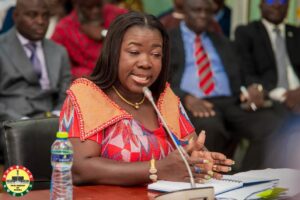She noted the factory’s current state of dormancy, attributed to a lack of raw materials, missing parts, and unresolved operational challenges.
“I have been told that as we speak, the Komenda Sugar Factory is not operational, and one of the major challenges the factory has suffered is the lack of raw materials to feed that industry and some missing parts,” she remarked, addressing the factory’s longstanding issues.
The Komenda Sugar Factory, built with significant national investment, was expected to reduce Ghana’s reliance on sugar imports and create employment opportunities.
However, since its commissioning in 2016, it has struggled with operational challenges, leading to intermittent closures. Ghana continues to import approximately $500 million worth of sugar annually, a reality the minister-designate sees as unsustainable.
“But it’s obvious we need that factory to work for the benefit of Ghanaians because we are importing about half a million dollars worth of sugar into the country,” she explained, underscoring the economic implications of the factory’s inactivity.
Ofosu-Adjare revealed that funds had previously been allocated to address the factory’s issues, though the exact health of the facility remains uncertain.
“I have also been told that monies were released to solve these problems. And the total health of the factory should be done after an evaluation. So I will work to ensure we know the actual health of the factory,” she said, signalling her intention to prioritize a comprehensive assessment.
Once in office, the minister-designate pledged to collaborate with relevant stakeholders to restore the factory to functionality.
“I will work together with the ministry to ensure we assess the health of the factory and ensure Ghana benefits from that monumental project,” she concluded.

























